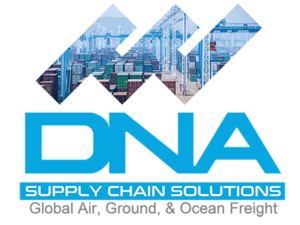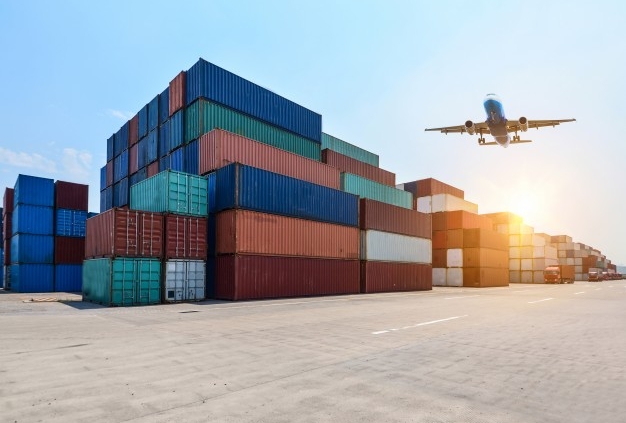The Freight incoterms can be regarded as the contract terms that are used in the import/export sales contracts. These terms define everything from responsibility to liability for shipments of the goods. Simply put, they help to define that how far into the process the supplier will remain responsible for moving the goods and when exactly would the buyer takes this shipment process over.
The most commonly used incoterms in this regard are FOB (Free on Board), EXW (Ex Works). But there is a lot more to learn about these as well as plenty of other options. However, these terms are written in the light of law which makes these legal terms very perplexing and hence easily misunderstood. So, if you don’t wish for your shipment to turn into an expensive ordeal, then you need to read this guide to clearly understand each incoterm when it comes to international freight.
What is EXW (Ex Works)?
When it comes to EXW or Ex Works, the buyer is responsible for the whole shipment starting from the warehouse of the supplier to the final destination of the cargo. The buyer is both liable and responsible for all the steps in the EXW freight forwarding company. The seller is responsible for only two things. First, the Air Waybill or Bill of Lading must be ready. Second, the goods must be ready at the named pickup place, usually their factory at the agreed-upon time with the forwarder.
Is EXW A Good Choice?
Mostly, Ex-work isn’t the most convenient of arrangements, as the buyer may not have a strong position when compared to the seller when it comes to arranging different tasks in the export company. These tasks are everything from loading the goods on a truck to documentation to arranging any specific tools and equipment needed to load the goods and not to forget the management of export clearance. FCA is a better option in this regard.
Benefits and Risks of using EXW
EXW is good news for the importers and the buyers in a way that it becomes a lesser risk for them. The EXW renders the importers complete control over their cargo or goods. It is best if you are rooting for the safest and risk-free transportation for your goods. The seller will have to render the goods at the disposal of the buyer, and then the whole process of transportation is up to the buyer ensuring complete visibility and transparency for the buyer.
On the other hand, EXW is a great way of saving costs and expenses for the exporters. Exporters will have to put the goods at the buyer’s disposal, and the buyer will pay all the costs associated with transportation. So, if you are an exporter or a seller and looking for an incoterm to save you some bucks on transportation, then go for EXW.
Buyers usually prefer EXW as they have full control over the process of cargo and transportation. That is going to ensure safe and risk-free transportation for the buyers, but at the same time, there are also some risks involved with the use of EXW. Buyers should ONLY consider using EXW if they know and are familiar with the laws and rules related to imports in a country also if your freight carrier is also present in the same country.
If you are not already familiar with the importing laws of a country then using EXW can pose serious risks for the buyers and can cause extra complications in the process. In such a situation, the buyers should consider getting the items or goods to a predetermined terminal and arranging a cargo flight from there.
From the seller’s point of view, EXW can be a risk because the seller is not involved in the loading of the items or goods. Many sellers and exporters are using EXW in contracts, but in real practice, they are exporting under FCA. This is because companies and factories cannot afford to let buyers into the packaging area of their factories.

Hence, they load the products by themselves and then use EXW to save money but in fact, the sellers in this way are non-compliant to the EXW obligations as it does not involve loading of the goods by the seller. This non-compliance can cause complications for the exporters in the process. Under this situation, FCA is much better than EXW for the seller.
How Freight Company Services are Beneficial for You?
We all take air freight to be the fastest alternative of transport. If you want to move your good quickly from one place to another, then choosing air freight service is what it work best for you. Hence, you can choose it as the best alternative to the ocean, road, or rail transport. Due to the speed, you can take air freight as the most effective option for the shipping of goods over longer distances.
Plus, you will also find the air freight shipments to be highly reliable. It’s a fact that you always want your goods to be received at the first time and on time which is always your top priority. These Air freight shipments are yet known to be highly reliable as the airlines where they do tend to be over the top of their schedules with the dependable arrival and departure times. Even there is a missed flight, it won’t be causing too many of delays as most of the air freight services run on the daily schedules, often with hourly departures. Do you want to ship your items to a far-off destination? The routes for sea, road and rail freight commonly contain predominant transportation networks, leaving the smaller international locations of the world out. Many airlines, however, have a giant community of locations masking almost the complete world. This means, with air freight you can ship your items nearly anywhere.




